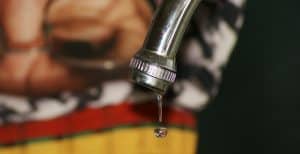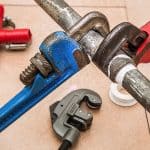People usually forget to arrange for a plumbing inspection if there are not any visible breaks or leaks. However, every small problem leads to the bigger one, at least when the plumbing is in question. Therefore, in order to save money and avoid damage that plumbing problems can cause, you should arrange for a plumbing inspection regularly. So, today we will talk about how often should you arrange for plumbing inspection!
So, plumbing inspection – how often?
You should arrange for plumbing inspection on a regular basis. If you want to solve burst pipe insurance claims in a timely manner, that is. Identifying any potential problems in advance and making sure that everything is functioning properly is very important in order to prevent huge leaks and breaks. If you check your plumbing from time to time and find potential issues that can cause a lot of damage you will also save a lot of money and avoid the unnecessary stress.

Most of the plumbing professionals will advise you that you should arrange for a plumbing inspection at least once every two years. However, there are some other cases where inspection should happen more frequently.
- Living in an old Home
- Properties with Mature Trees
- Moving into a new Home
Living in an old home
If your home was built before 1960, your plumbing system has steel pipes. At that time, plumbers were using pipes made of steel because of its strength. They didn’t know that those pipes made of steel could actually deteriorate after a certain amount of years. Thus, water damage insurance claim was kinda tricky to handle, for example. If your home has old pipes made of steel, you should arrange for plumbing inspection more frequently. Deteriorated pipes can lead to leaks and bursts.
Properties with mature trees
Does your property have a lot of old trees that have been growing for years? One more reason for frequently plumbing inspection! Trees that grow for years have extended roots underground that is not easy to spot or track. Roots are very powerful and while they are growing they can push through the plumbing pipes underground. It will take years for you to notice if roots break some of the pipes underground. However, an experienced plumber will know what to search for and they will find the problem fast and fix it effectively.
Arrange for plumbing inspection – moving into a new home
Purchasing a new home requires arranging for plumbing inspection too. Nobody likes sudden unpleasant experiences! Even if your new home was inspected by the home inspector, you should just in case and for your own peace, hire a professional plumber to come and inspect everything before you move in. Some small things can be easily overlooked and then cause problems after a while.

You should protect your new home from any further plumbing problems. After the inspection, you should consider getting insurance. Therefore, you should check a guide for choosing an insurance company so you can rest assured that you are covered.
What happens in an inspection?
A proper inspection is more than only looking for the leaks. Searching for the pipes with cracks and leaks is just one small part of the whole inspection process. This is the list of things that every professional plumber should do when they come to your home for complete plumbing inspection:
- A professional plumber will check for running toilets (this problem can raise your water bill significantly)
- The plumber will check the water pressure! Low water pressure could indicate that there is an underground leak.
- Inspection of water and drain lines in crawlspace
- Checking drains and sinks for proper water flow and remove blockages if there is any
- Inspection of all water-using appliances in the house
- Checking valves and vents (in case you are curious, you can check how to vent plumbing!)
- The plumber will use drain cameras to make sure that there isn’t any waste in the pipes that can cause clogs
- Inspecting old pipes
What happens after the inspection?
After a professional plumber finishes with an inspection, they will sit down with you and tell you about all the problems they have found. They will inform you about the pipes, faucets, valve, water heater condition and point out what is the problem that should be fixed as soon as possible. They will also recommend what is the best way to fix existing problems. Some potential issues that should be fixed are:
- Fixing leaking faucets
- Resealing toilets and tubs
- Repairing or replacing the water heater if needed (water heater should be checked annually)
- Fixing leaking joints between pipes
- If it is possible, somehow preventing tree roots from damaging the underground pipes
- Getting the system up to code

The pipe that bursts inside of a wall can flood your house and cause a lot of damage. It is important to know what causes floods so you can do your best to prevent them.
Plumbing inspection – septic system
If the property that you are buying has a septic system instead of municipal sewer you should be careful. If you are buying a house with a septic system, you should make sure that the entire system is fully functional before you move in. The clear signs of seepage are odor and standing water. You should fix this problem as soon as possible in order to prevent further complications and health hazards!
Most of the homes possess hazardous materials, such as gas, paint, matches, fuel for lawn mower and blower, etc. Therefore, you should inform yourself what are the most flammable items in your home and pay close attention to them.
Calling your plumber just in case of an emergency is not a good idea. Even a small leak can make a huge problem and you should fix it immediately. Hopefully, after reading this article, you will arrange for plumbing inspection as soon as possible!





